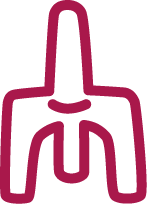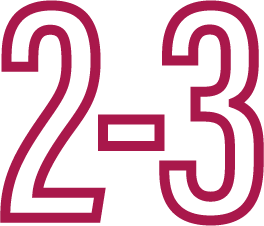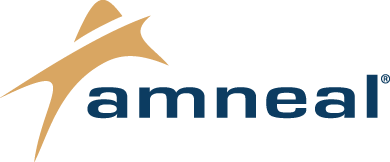TAKING
CONTROL
Over it
WHAT IS NALOXONE
HYDROCHLORIDE NASAL SPRAY?
 Amneal Naloxone Hydrochloride (Naloxone HCI) Nasal Spray, USP, 4mg is an FDA approved over-the-counter generic equivalent for Narcan® (Naloxone HCl) Nasal Spray.
Amneal Naloxone Hydrochloride (Naloxone HCI) Nasal Spray, USP, 4mg is an FDA approved over-the-counter generic equivalent for Narcan® (Naloxone HCl) Nasal Spray.
Naloxone is a medication that has been widely used by emergency medical personnel and other first responders for decades to help reverse opioid overdose. It works by binding to opioid receptors and helping to reverse or block the effects of opioids, restoring normal breathing.
Naloxone is designed to rapidly reverse the effects of a life-threatening opioid emergency. It can restore normal breathing within 2 to 3 minutes in a person whose breath has slowed, or even stopped, as a result of a known or suspected overdose from opioids.
When using this product some people may experience symptoms when they wake up, such as shaking, sweating, nausea, or feeling angry. This is to be expected.
Naloxone is easy to carry and can be safely used, even if opioids are not present.
Research shows that higher dose and long-acting
naloxone have no added benefit revival rates and can result
in more painful withdrawal symptoms for the person
receiving Naloxone when compared to the 4mg dose.
Payne ER, Stancliff S, Rowe K, Christie JA, Dailey MW. Comparison of Administration of 8-Milligram and 4-Milligram Intranasal Naloxone by Law Enforcement During Response to Suspected Opioid Overdose — New York, March 2022–August 2023. MMWR Morb Mortal Wkly Rep 2024;73:110–113. DOI: http://dx.doi.org/10.15585/mmwr.mm7305a4
EASY

TO CARRY & SAFELY USE
RESTORES BREATHING IN

MINUTES
REVERSES

OPIOID OVERDOSE
FAQS
Who can carry it?
Naloxone HCl Nasal Spray 4mg is available over the counter. Therefore, anyone can carry it to administer on someone experiencing a known or suspected opioid overdose, potentially saving a life.
The Centers for Disease Control and Prevention (CDC) recommends that those at particularly high-risk should carry Naloxone Nasal Spray, including:5
- People who are taking high-dose opioid medications (greater or equal to 50 morphine milligram equivalents per day) prescribed by a doctor
- People who use opioids and benzodiazepines together
- People who use unregulated opioids like heroin
Because you can’t use Naloxone Nasal Spray on yourself, always let others know you have it in case you experience an opioid overdose.5
When to use it
- Small, constricted “pinpoint pupils”
- Falling asleep or losing consciousness
- Slow, weak, or no breathing
- Choking or gurgling sounds
- Limp body
- Cold and/or clammy skin
- Discolored skin (especially in lips and nails)
Who is at risk of an overdose?
Over 70% of preventable opioid deaths occur among those ages 25 to 54. Most of these victims are men, but the overdose rate among women is climbing.11
Black American Indian or Alaska Native communities are generally disproportionately affected by overdose due to economic inequities. [citation: Kariisa M, Davis NL, Kumar S, et al. Vital Signs: Drug Overdose Deaths, by Selected Sociodemographic and Social Determinants of Health Characteristics — 25 States and the District of Columbia, 2019–2020. MMWR Morb Mortal Wkly Rep 2022;71:940–947. DOI: http://dx.doi.org/10.15585/mmwr.mm7129e2.]
College-aged adults are the biggest users of prescription drugs for nonmedical purposes.12
Several factors may put one at higher risk of an opioid overdose, including:
- Having an opioid use disorder
- Injecting opioids
- Starting to take opioids after a long period of abstinence (e.g., following detox or incarceration)
- Using prescription opioids without the supervision of a healthcare provider
- Taking high doses of opioids
- Using opioids with alcohol and/or other medicines that suppress respiratory function
- Having concurrent mental health conditions or medical conditions, such as HIV or liver or lung disease
- Recreational use of…
- Synthetic opioids other than methadone, including fentanyl, fentanyl analogs, and tramadol
- Heroin
- Natural and semisynthetic opioids, including morphine, oxycodone, and hydrocodone
- Methadone
- Psychostimulants with abuse potential
How do you use it?
Naloxone Nasal Spray is designed to be used without the need for any medical training.
If you suspect an opioid overdose, administer Naloxone Nasal Spray according to the instructions and get emergency medical help right away. According to Substance Abuse and Mental Health Services Administration (SAMHSA),
- Step 1: Check if you suspect an overdose (face is extremely pale and/or feels clammy to the touch, body is limp, fingernails or lips have a purple or blue color, person is vomiting or gurgling, they are unconscious / unable to speak, breathing or heartbeat is slow or stops) [citation: Substance Abuse and Mental Health Services Administration. Opioid Overdose. https://www.samhsa.gov/medications-substance-use-disorders/medications-counseling-related-conditions/opioid-overdose. Accessed October 28, 2024]
- Step 2: If the person is not breathing or breathing is very weak, call 911 immediately. Begin chest compressions, or CPR. [citation: Substance Abuse and Mental Health Services Administration. Opioid Overdose. https://www.samhsa.gov/medications-substance-use-disorders/medications-counseling-related-conditions/opioid-overdose. Accessed October 28, 2024]
- Step 3: Give first dose of Naloxone Nasal Spray. [citation: Substance Abuse and Mental Health Services Administration. Opioid Overdose. https://www.samhsa.gov/medications-substance-use-disorders/medications-counseling-related-conditions/opioid-overdose. Accessed October 28, 2024]
- Step 4: Wait 2-3 minutes after the first dose to give the medicine time to work. If the person wakes up, stay until the ambulance arrives. If the person does not wake up, continue to give doses every 2-3 minutes until the person wakes up. It is safe to give additional doses. [citation: Substance Abuse and Mental Health Services Administration. Opioid Overdose Prevention Toolkit. https://store.samhsa.gov/sites/default/files/five-essential-steps-for-first-responders.pdf. Accessed October 28, 2024]
- Step 5: Roll the person on their side and place them in the ‘recovery position.’ [citation: Substance Abuse and Mental Health Services Administration. Opioid Overdose Prevention Toolkit. https://store.samhsa.gov/sites/default/files/five-essential-steps-for-first-responders.pdf. Accessed October 28, 2024]
